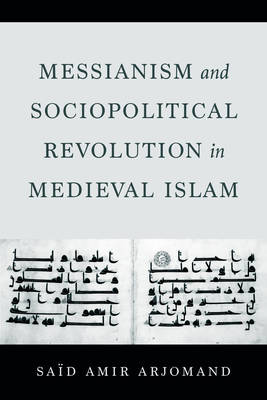
- Afhalen na 1 uur in een winkel met voorraad
- Gratis thuislevering in België vanaf € 30
- Ruim aanbod met 7 miljoen producten
- Afhalen na 1 uur in een winkel met voorraad
- Gratis thuislevering in België vanaf € 30
- Ruim aanbod met 7 miljoen producten
Zoeken
€ 161,45
+ 322 punten
Omschrijving
This study of messianism and revolution examines an extremely rich though unexplored historical record on the rise of Islam and its sociopolitical revolutions from Muhammad's constitutive revolution in Arabia to the Abbasid revolution in the East and the Fatimid and Almohad revolutions in North Africa and the Maghreb. Bringing the revolutions together in a comprehensive framework, Saïd Amir Arjomand uses sociological theory as well as the critical tools of modern historiography to argue that a volatile but recurring combination of apocalyptic motivation and revolutionary action was a driving force of historical change time and again. In addition to tracing these threads throughout 500 years of history, Arjomand also establishes how messianic beliefs were rooted in the earlier Judaic and Manichaean notions of apocalyptic transformation of the world. By bringing to light these linkages and factors not found in the dominant sources, this text offers a sweeping account of the long arc of Islamic history.
Specificaties
Betrokkenen
- Auteur(s):
- Uitgeverij:
Inhoud
- Aantal bladzijden:
- 388
- Taal:
- Engels
Eigenschappen
- Productcode (EAN):
- 9780520387584
- Verschijningsdatum:
- 25/10/2022
- Uitvoering:
- Hardcover
- Formaat:
- Genaaid
- Afmetingen:
- 157 mm x 231 mm
- Gewicht:
- 635 g

Alleen bij Standaard Boekhandel
+ 322 punten op je klantenkaart van Standaard Boekhandel
Beoordelingen
We publiceren alleen reviews die voldoen aan de voorwaarden voor reviews. Bekijk onze voorwaarden voor reviews.







